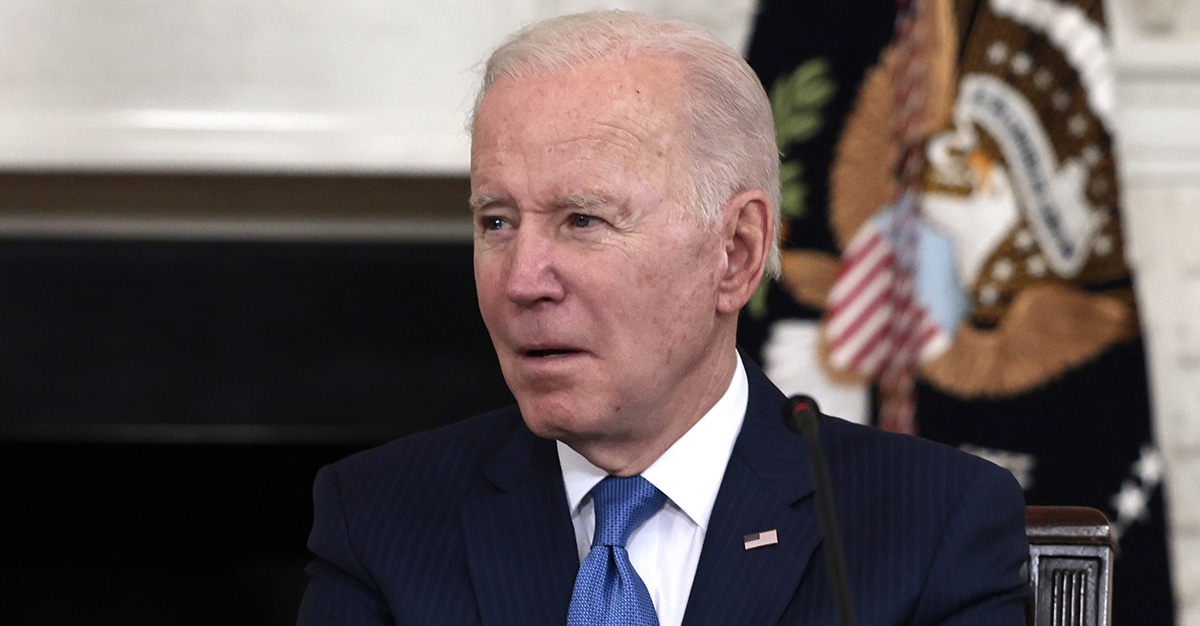OPINION: This article may contain commentary which reflects the author's opinion.
There is another roadblock for President Joe Biden’s vaccine mandate for federal workers as the administration attempts to grasp whatever it can to continue its program.
A federal appeals court on Wednesday said it would not reinstate the mandate, which kept in place a lower court ruling, CNN reported.
The 5th US Circuit Court of Appeals did not explain its reasoning in the unsigned order that said the court was expediting its review of the case. The court said the Biden administration’s request to put the lower court’s ruling on hold was being “carried with the case,” signaling that the appeals court would not rule on the request until it had conducted a fuller review of the case.
The mandate, which applied to some 3.5 million federal workers, required full vaccination by the end of November, although the administration said it would first counsel employees who resisted vaccination rather than discipline or fire them. On December 9, the Office of Management and Budget said the federal workforce was 97.2% compliant with the mandate — a figure that included people who had pending or approved exemptions.
Last month, a federal judge in Texas blocked the administration from enforcing the requirement, calling the mandate an overstep of presidential authority and citing a Supreme Court decision to strike down a separate administration mandate that had applied to private-sector workers.
There was one dissent on the appeals court panel, by US Circuit Judge Stephen Higginson, who was appointed by former President Obama.
“[T]he public interest is not served by a single Article III district judge, lacking public health expertise and made unaccountable through life tenure, telling the President of the United States, in his capacity as CEO of the federal workforce, that he cannot take the same lifesaving workplace safety measures as these private sector CEOs,” he said.
“The only court that can now provide timely relief is the Supreme Court,” he said.
And that is likely where the case is headed after a judge, appointed by former President Donald Trump, blocked the mandate last month, Reuters reported.
Biden had issued an order requiring about 3.5 million government workers to get vaccinated by Nov. 22 barring a religious or medical accommodation — or else face discipline or firing.
U.S. District Judge Jeffrey Brown said the question was whether Biden could “require millions of federal employees to undergo a medical procedure as a condition of their employment. That, under the current state of the law as just recently expressed by the Supreme Court, is a bridge too far.”
Brown, based in Galveston and appointed by then-President Donald Trump, said the government could protect public health with less invasive measures, such as masking and social distancing.
White House Press Secretary Jen Psaki was asked about the ruling at her press briefing on Friday, shortly after the decision was made.
“A federal judge in Texas has ruled that President Biden’s mandate for federal workers to be vaccinated cannot go through. Do you have a reaction to that?” a reporter said.
“Well, first, let me update you that 98 percent of federal workers are vaccinated. That is a remarkable number. I would point you to the Department of Justice on any next steps as this news, it sounds like, just broke. But obviously, we are confident in our legal authority here,” she said.
The actual number, The White House later said, was 93 percent of federal workers were vaccinated and 98 percent were either vaccinated or seeking a religious exemption which puts them in compliance.
“The President certainly possesses ‘broad statutory authority to regulate executive branch employment policies,'” the judge said. “But the Supreme Court has expressly held that a COVID-19 vaccine mandate is not an employment regulation. And that means the President was without statutory authority to issue the federal worker mandate.”
“The court notes at the outset that this case is not about whether folks should get vaccinated against COVID-19 — the court believes they should,” the judge said.
“It is not even about the federal government’s power, exercised properly, to mandate vaccination of its employees,” he said. “It is instead about whether the President can, with the stroke of a pen and without the input of Congress, require millions of federal employees to undergo a medical procedure as a condition of their employment. That, under the current state of the law as just recently expressed by the Supreme Court, is a bridge too far.”
